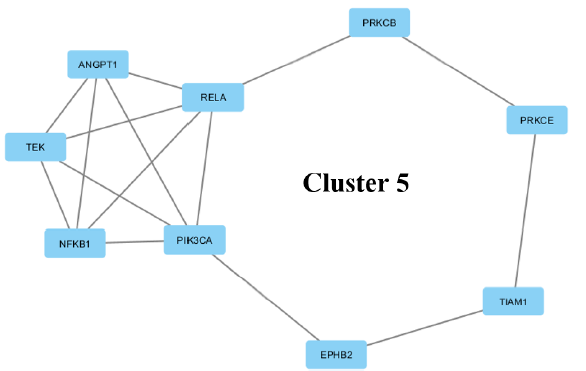Evaluation of the role of kras gene in colon cancer pathway using string and Cytoscape software
DOI:
https://doi.org/10.15419/bmrat.v7i6.612Keywords:
KRAS, STRING, MCODE clustering, BiNGOAbstract
Introduction: cancer is one of the top three most commonly occurring cancer worldwide with more than 1.8 million cases in 2018. In Malaysia, cancer is the most common cancer in males and the second most common cancer in females. Albeit being the second most common form of cancer in Malaysia, there is a lack of informal or structured national cancer screening program in Malaysia and it remains a low priority in healthcare planning and expenditure. The risk of developing colon cancer is greatly influenced by factors such as lifestyle habits, genetic inheritance, diet, weight, and exercise. KRAS, the most frequently mutated oncogene in cancer, occurs in about 50 percent of cancers. This study maps the KRAS gene involved in colon cancer pathway using applications such as STRING version 11.0 and version 3.7.0 to provide a clear visualization of all the related and involved proteins and genes that interact with KRAS gene in the pathway. Methods: Using KRAS as a seed, a protein-protein interaction network was constructed with 3391 interactions which were retrieved from the STRING version 11.0 database. The protein network interaction was further grouped into 6 clusters using the MCODE application. Molecular function and biological processes of the genes involved in the KRAS protein network were determined using Biological Networks Gene Ontology (BiNGO). Results: According to the resulting protein-protein network interaction map, it revealed that KRAS mechanism and co-expressed genes interconnected with protein or enzyme binding, receptor signaling protein activity and vascular endothelial growth factor (VEGF) receptor 2 binding. Conclusion: Understanding these protein-protein interactions provide insight into cellular activities and thus aid in the understanding of the cause of disease.
Downloads
Published
2020-06-27
Issue
Section
Original Research
License
Copyright The Author(s) 2017. This article is published with open access by BioMedPress. This article is distributed under the terms of the Creative Commons Attribution License (CC-BY 4.0) which permits any use, distribution, and reproduction in any medium, provided the original author(s) and the source are credited.
How to Cite
Evaluation of the role of kras gene in colon cancer pathway using string and Cytoscape software. (2020). Biomedical Research and Therapy, 7(6), 3835-3842. https://doi.org/10.15419/bmrat.v7i6.612
